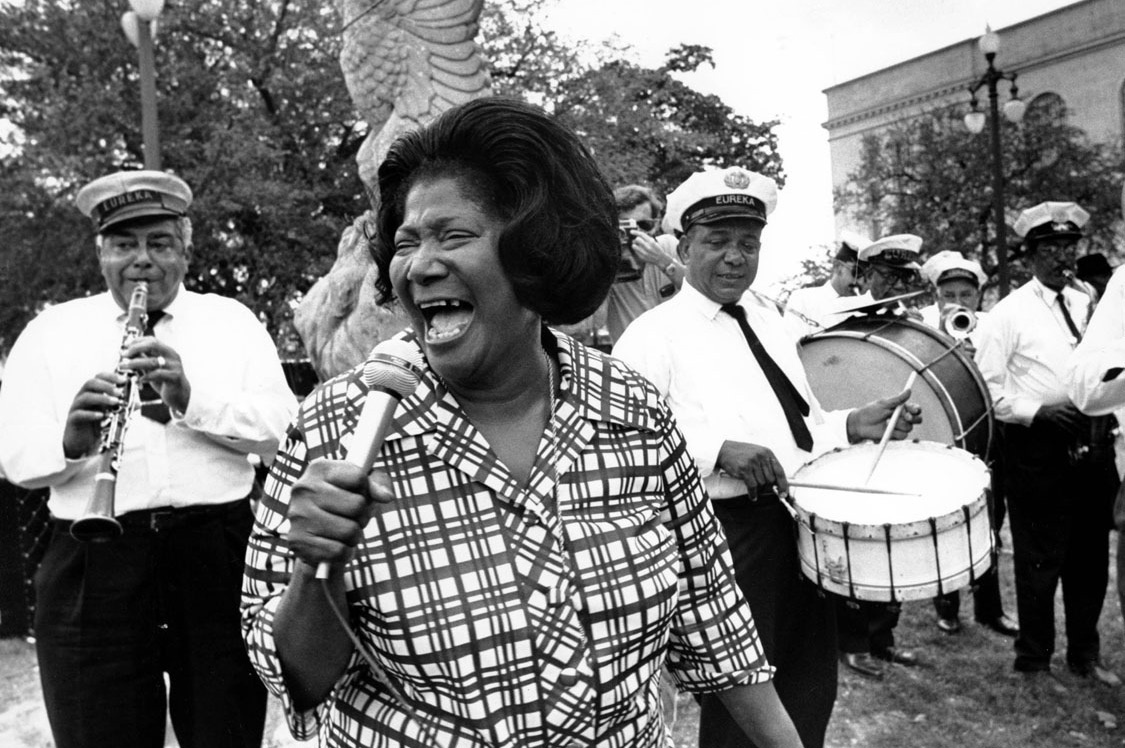
Mahalia Jackson offers an impromptu rendition of the gospel song “Just a Closer Walk with Thee” to the beat of the Eureka Brass Band at the New Orleans Jazz Festival in April 1970.
One of the central themes of my history course is that the United States is a nation of great contradictions. The history of American music provides an excellent means for illuminating perhaps the most basic contradiction of all in U.S. society, that of race. How could the author of the Declaration of Independence, which declares that “all men are created equal” and possess an “inalienable right to life, liberty and the pursuit of happiness,” have enslaved other human beings? How could the founding fathers be inspired by the example of limited government set by the Iroquois nations yet engage in a genocide when Indigenous people interfered with westward expansion?
American music — jazz, rock, rap, R&B, gospel, country — has been the most alive and innovative musical tradition in the world for at least the last century. All these forms come out of a mix of African, European, and Native American sources that characterizes the musical heritage of both North and South America. Yet, in the United States, Black artists typically have done the lion’s share of the innovating, while white artists (and white-owned record labels) have reaped the lion’s share of the financial rewards. Furthermore, our cultural elites still overwhelmingly look to Europe to validate U.S. “high” culture, when what makes us unique is the unprecedented cultural crossbreeding that has taken place here. Compare the corporate and government support for “classical” forms such as the symphony, opera, and ballet to what’s afforded to jazz, which should be considered the classical expression of American vernacular music. It is impossible to seriously study 20th-century American music, from ragtime to rap, without also studying the history of racism.

 This lesson was published by Rethinking Schools in an edition of Rethinking Schools magazine, “Improving Teacher Quality,” (Winter 2005). For more articles and lessons like “School Days: Hail, Hail, Rock ‘n’ Roll!,” visit Rethinking Schools.
This lesson was published by Rethinking Schools in an edition of Rethinking Schools magazine, “Improving Teacher Quality,” (Winter 2005). For more articles and lessons like “School Days: Hail, Hail, Rock ‘n’ Roll!,” visit Rethinking Schools.
Additional Resources
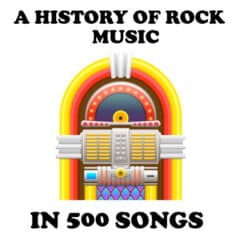 In the podcast A History of Rock Music in 500 Songs, host Andrew Hickey presents a history of rock music from 1938 to 1999, looking at five hundred songs that shaped the genre. Each episode delves into a particular song, noting its historical time, place, and significance.
In the podcast A History of Rock Music in 500 Songs, host Andrew Hickey presents a history of rock music from 1938 to 1999, looking at five hundred songs that shaped the genre. Each episode delves into a particular song, noting its historical time, place, and significance.


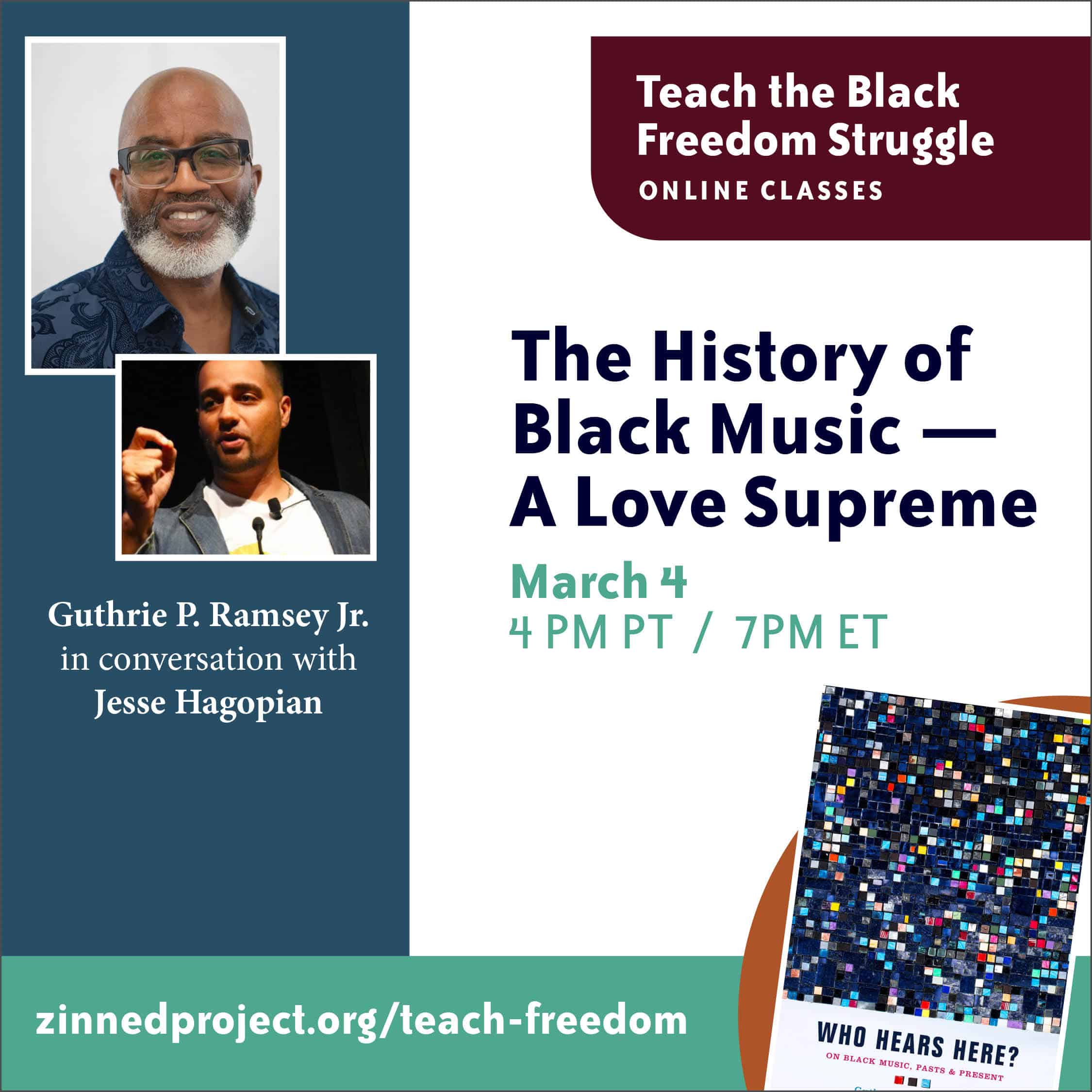
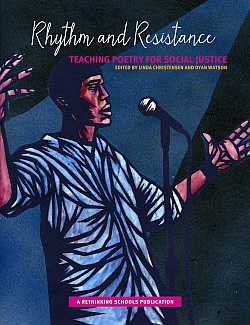
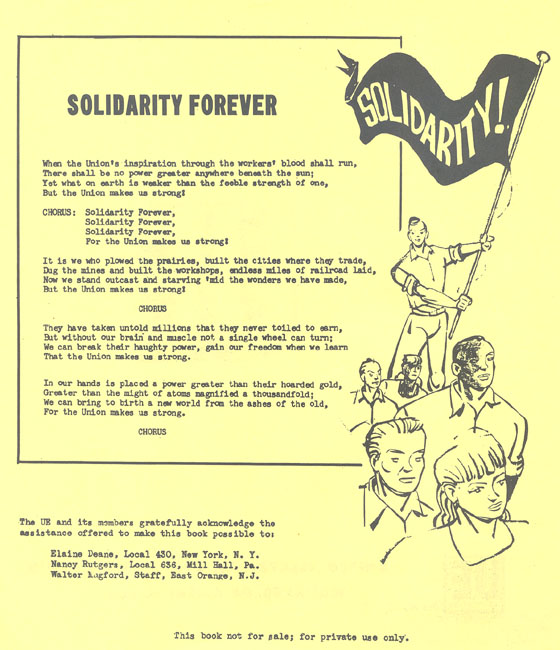
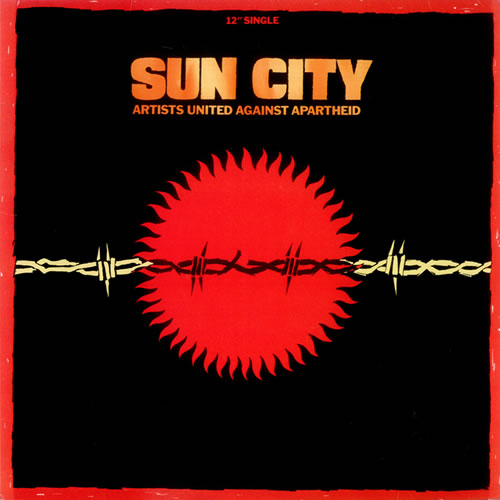






Twitter
Google plus
LinkedIn